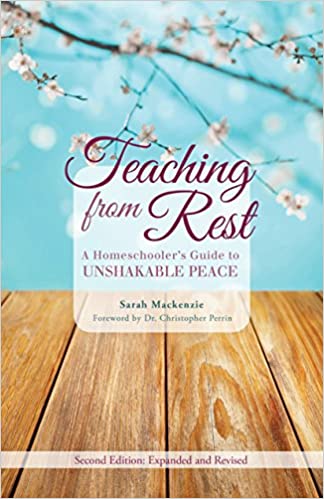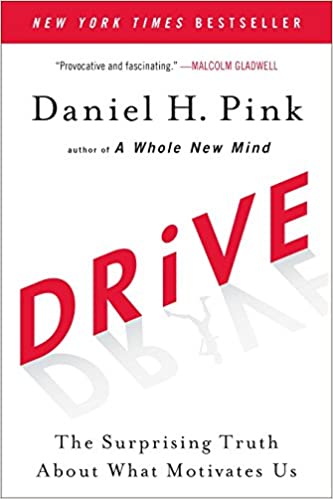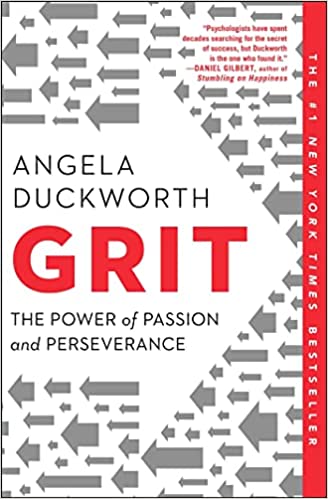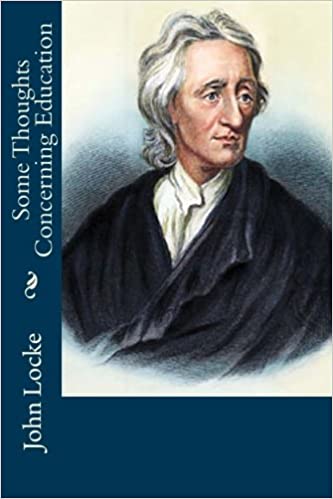Teaching from Rest: A Homeschooler’s Guide to Unshakable Peace
This new, revised, and first print edition of Sarah Mackenzie's best-selling eBook version contains 35% new content! Those who have made the decision to homeschool their children have done so out of great love for their children and a desire to provide them an excellent education in the context of a warm, enriching home. Yet so many parents (mainly mothers) who have taken up this challenge find the enterprise often full of stress, worry, and anxiety. In this practical, faith-based, and inspirational book, Sarah Mackenzie addresses these questions directly, appealing to her own study of restful learning (scholé) and her struggle to bring restful learning to her (six) children.
More info →Drive: The Surprising Truth About What Motivates Us
Most people believe that the best way to motivate is with rewards like money—the carrot-and-stick approach. That's a mistake, says Daniel H. Pink (author of To Sell Is Human: The Surprising Truth About Motivating Others). In this provocative and persuasive new book, he asserts that the secret to high performance and satisfaction-at work, at school, and at home—is the deeply human need to direct our own lives, to learn and create new things, and to do better by ourselves and our world.
Drawing on four decades of scientific research on human motivation, Pink exposes the mismatch between what science knows and what business does—and how that affects every aspect of life. He examines the three elements of true motivation—autonomy, mastery, and purpose-and offers smart and surprising techniques for putting these into action in a unique book that will change how we think and transform how we live.
More info →Grit: The Power of Passion and Perseverance
In this instant New York Times bestseller, Angela Duckworth shows anyone striving to succeed that the secret to outstanding achievement is not talent, but a special blend of passion and persistence she calls “grit.” “Inspiration for non-geniuses everywhere” (People).
The daughter of a scientist who frequently noted her lack of “genius,” Angela Duckworth is now a celebrated researcher and professor. It was her early eye-opening stints in teaching, business consulting, and neuroscience that led to her hypothesis about what really drives success: not genius, but a unique combination of passion and long-term perseverance.
In Grit, she takes us into the field to visit cadets struggling through their first days at West Point, teachers working in some of the toughest schools, and young finalists in the National Spelling Bee. She also mines fascinating insights from history and shows what can be gleaned from modern experiments in peak performance. Finally, she shares what she’s learned from interviewing dozens of high achievers—from JP Morgan CEO Jamie Dimon to New Yorker cartoon editor Bob Mankoff to Seattle Seahawks Coach Pete Carroll.
“Duckworth’s ideas about the cultivation of tenacity have clearly changed some lives for the better” (The New York Times Book Review). Among Grit’s most valuable insights: any effort you make ultimately counts twice toward your goal; grit can be learned, regardless of IQ or circumstances; when it comes to child-rearing, neither a warm embrace nor high standards will work by themselves; how to trigger lifelong interest; the magic of the Hard Thing Rule; and so much more. Winningly personal, insightful, and even life-changing, Grit is a book about what goes through your head when you fall down, and how that—not talent or luck—makes all the difference. This is “a fascinating tour of the psychological research on success” (The Wall Street Journal).
More info →Some Thoughts Concerning Education
Some Thoughts Concerning Education is a 1693 treatise on the education of gentlemen written by the English philosopher John Locke. For over a century, it was the most important philosophical work on education in England. It was translated into almost all of the major written European languages during the eighteenth century, and nearly every European writer on education after Locke, including Jean-Jacques Rousseau, acknowledged its influence.
In his Essay Concerning Human Understanding (1690), Locke outlined a new theory of mind, contending that the gentleman's mind was a tabula rasa or "blank slate"; that is, it did not contain any innate ideas. Some Thoughts Concerning Education explains how to educate that mind using three distinct methods: the development of a healthy body; the formation of a virtuous character; and the choice of an appropriate academic curriculum.
Locke wrote the letters that would eventually become Some Thoughts for an aristocratic friend, but his advice had a broader appeal since his educational principles allowed commoners to think they could acquire the same kind of character as the aristocrats for whom Locke originally intended the work.
Odin’s Library Classics is dedicated to bringing the world the best of humankind’s literature from throughout the ages. Carefully selected, each work is unabridged from classic works of fiction, nonfiction, poetry, or drama.






